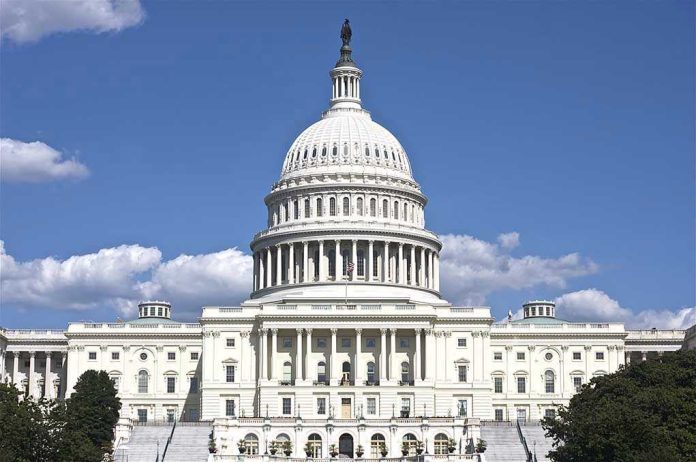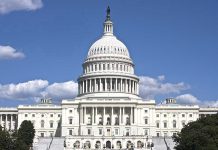
The battle over who controls America’s war decisions erupted when the Trump administration claimed its boat strikes against Iranian vessels in the Persian Gulf sidestepped the very law designed to check presidential military power—leaving Washington’s checks and balances dangling by a thread.
Story Snapshot
- The Trump administration declared War Powers law didn’t apply to boat strikes in the Persian Gulf, igniting fierce legal and political debate.
- Congress questioned the president’s ability to bypass oversight, triggering hearings and expert scrutiny.
- The incident exposed how “defensive” military actions could reshape the definition of “hostilities” in U.S. law.
- Long-term repercussions threaten to tilt the balance of power between Congress and the presidency.
Defining the Limits of Presidential War Authority
President Trump authorized the U.S. military to destroy Iranian boats in June 2019, arguing these measures were purely defensive and thus not subject to the War Powers Resolution. The administration’s formal notification to Congress claimed the law only applied to “hostilities,” and destroying threatening boats didn’t meet that bar. This legal reasoning triggered immediate outcry from lawmakers and constitutional experts, who saw the maneuver as a challenge to the tradition of congressional oversight. The administration’s rationale, that defensive actions fall outside the law’s reach, put centuries-old checks and balances into question.
Congressional leaders, including Speaker Nancy Pelosi and Senate Majority Leader Mitch McConnell, responded with demands for hearings and transparency. Legal scholars dissected the administration’s interpretation, warning that narrowing the definition of “hostilities” could create a precedent for unchecked executive war powers. The Department of Defense stood by the administration, emphasizing the need to protect U.S. forces in a volatile region while minimizing bureaucratic delays. The debate quickly shifted from abstract legal theory to urgent questions about how America decides to use military force.
The War Powers Resolution: A Law Born of Crisis
Congress enacted the War Powers Resolution in 1973, aiming to restrain presidential authority after the Vietnam War and secret bombings in Cambodia. The law requires presidents to notify Congress within 48 hours of deploying troops and mandates withdrawal after 60 days unless Congress gives explicit approval. Passed over President Nixon’s veto, this legislation became the primary mechanism for congressional oversight of military action. Over the past five decades, presidents have often tested its boundaries, claiming exceptions for short-term or defensive missions, but the Trump administration’s stance in 2019 marked one of the starkest challenges yet.
Major precedents include the Reagan administration’s contested deployment of Marines to Lebanon in 1983, President Obama’s Libya intervention in 2011, and Trump’s own missile strikes in Syria in 2017. Each episode sparked legal debates about what constitutes “hostilities” and when the law should apply. The Persian Gulf incident brought these issues to the fore, as legal advisors argued that defensive strikes against Iranian boats didn’t trigger congressional review. Critics countered that such logic could enable presidents to conduct significant military engagements without meaningful oversight, eroding the legislature’s constitutional role.
Geopolitics and Power Struggles in the Persian Gulf
The Persian Gulf’s strategic importance amplifies the stakes of any military confrontation. U.S. naval forces regularly patrol these waters, facing off against Iranian vessels in a region vital to global oil trade. The Trump administration’s “maximum pressure” campaign heightened tensions, as sanctions and saber-rattling pushed both sides toward the brink. Iranian officials accused the U.S. of aggression; U.S. military leaders warned of imminent threats. In this pressure cooker, the administration’s decision to bypass War Powers law was more than legal hair-splitting—it was a high-stakes gamble with global consequences.
NYT: War powers law does not apply to Trump’s boat strikes, administration says (no paywall) https://t.co/9gvvFZ8cuz pic.twitter.com/xVAGRXGTT9
— Cate Long (@cate_long) November 3, 2025
The immediate impact was felt in oil markets, where prices swung with each new report of confrontation. The U.S. military faced new risks, operating under ambiguous legal authority. Congress struggled to assert its role, with hearings and media coverage intensifying through late June. Legal experts and constitutional scholars weighed in, some arguing that the administration’s definition of “hostilities” was dangerously narrow. Others cautioned that Congress had abdicated too much responsibility over decades of incremental executive power grabs.
Long-Term Implications and the Future of War Powers
The Trump administration’s interpretation of the War Powers Resolution created a blueprint for future presidents to act with minimal congressional interference, provided they framed military actions as defensive. Legal scholars warned that this precedent could erode legislative authority and allow for unchecked escalation. The lack of judicial review or legislative override left the issue unresolved, fueling ongoing debates about the proper balance between executive initiative and congressional restraint in matters of war.
Analysts from institutions such as Harvard Law Review and the Brookings Institution argued that the definition of “hostilities” must be clarified to prevent endless executive end-runs around the law. As tensions between Congress and the presidency continue, the foundational question remains: Who gets to decide when America goes to war, and under what circumstances? The Persian Gulf episode may not have changed the law, but it transformed the stakes—reminding Americans that the boundaries between defense and aggression, oversight and autonomy, can shift in a single decision.
Sources:
Wikipedia: War Powers Resolution
War Powers Resolution Activist Guide | FCNL
Findings and Analysis | War Powers Law and Security
Nixon Library: War Powers Resolution 1973
Ford Library: War Powers Act Document












